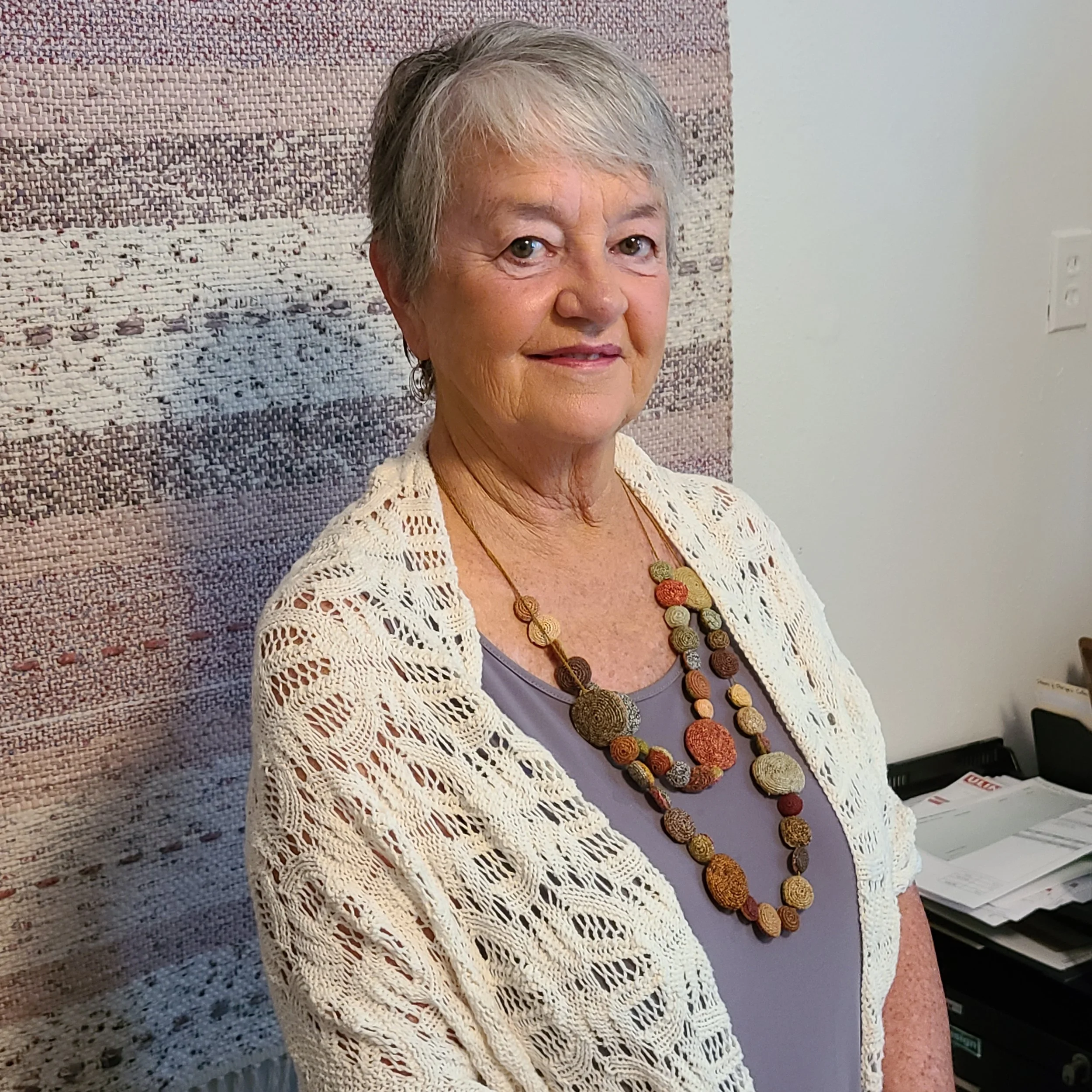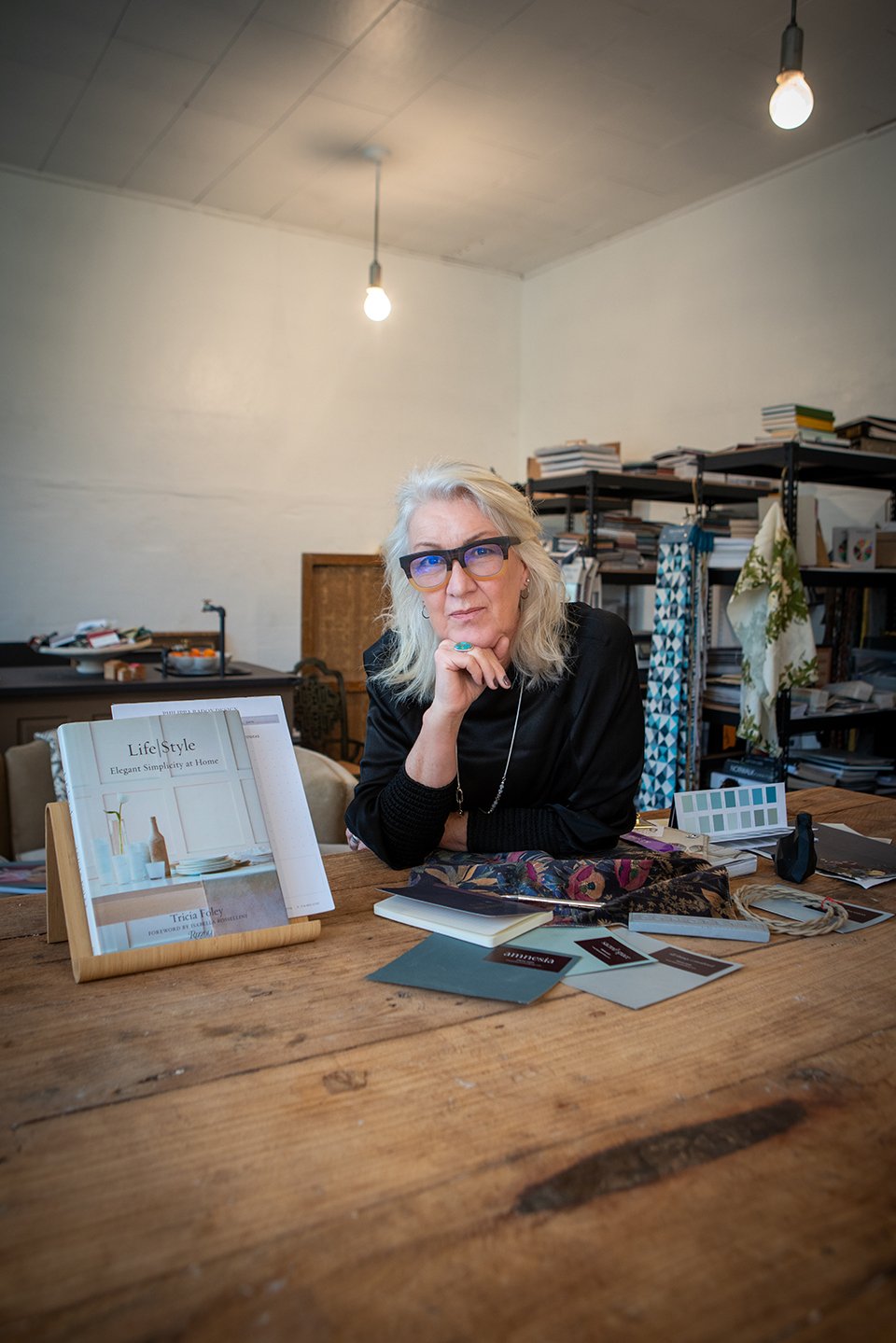Binding Love into Every Stitch

Appalachian Baby Design creates designs for knitters, crocheters and weavers to hand make keepsake gifts for babies and their families
by Barbara Elliott
In a career dedicated to promoting hand crafting in an era of increased mechanization, Diane Browning jokes that her greatest achievement may be figuring out how to source U.S. organic cotton for Appalachian Baby Design (ABD), the company she oversees from its Maxwelton headquarters. Organic cotton and wool yarn are the core ingredients of ABD’s kits for creating artfully designed baby blankets, hats, cardigans, toys and Christmas stockings that are sold to home crafters online and at retail outlets around the country.
“A major emphasis in Appalachian Baby Design’s development was imbuing the best of Appalachia into all brand development: beautiful countryside, a slower lifestyle and a reverence on family and tradition, many of the qualities that are important to people when a new baby arrives,” Browning explains. “It is a time of optimism, and an event where people really want to give a special gift.”
ABD is itself an offspring of an earlier company, Appalachian by Design, a social enterprise venture launched by Browning in the early 1990s to train a network of home-based machine knitters to produce high quality garments that were assembled, packaged and marketed from a central facility in Lewisburg. An important goal of the original ABD was to provide meaningful employment for women living in rural areas where good jobs were hard to find, and demands of child and elder care made it hard to work outside the home. In additional to providing a fair wage, ABD offered training, not only in machine knitting, but also in marketing and business skills. Through her involvement with the Women’s Institute for Secure Retirement (WISER), Browning also encouraged the knitters to put aside money for retirement. She continues to conduct demonstration projects for WISER in the region.
Through her connections in the craft world, Browning secured a contract with the Esprit apparel company to knit sweaters for their Ecollection. Other contracts followed with companies committed to sustainability, and eventually ABD marketed its own proprietary lines, including The Greenbrier Collection of high-end women’s clothing and Appalachian Baby Design.
A combination of factors, including changes in tariff laws that made global outsourcing easier, brought about abrupt changes in the market that ultimately led to the heartbreaking decision to shutter Appalachian by Design in 2005. However, because there was interest in the yarn used by the knitters, particularly the organic cotton used in the baby line, Appalachian Baby Design was spun off to meet the demand of the maker community, with a focus on handmade baby and family gifts.
Browning assembled a team of exceptional fiber artists she had met over the years to create and test original patterns for the new product line. The core group includes weaver Susan Ernst, knitter Linda Gavaldon, crochet designer Donna Myles, Christmas stocking guru Rachel Nash Law and technical knitting editor Sarah Peasley. Rounding out the team is Ruth McClung, who transitioned from helping care for Browning’s children when they were young to working behind the scenes at ABD helping prepare orders and keep the stock in good order.
Browning has the experience, marketing chops and eye for fine craftsmanship to weave together all the elements into a successful enterprise. “I thrive on working with skilled and creative people, coordinating among mill technicians, fiber designers, photographers, graphic artists, marketers, technical editors, retailers—and through all this collaboration, create fiber and designs that give folks a way to handcraft a gift that expresses their love,” she says.
ABD prides itself on the organic cotton featured in its products. “The essential attribute of our cotton is that it is grown organically in the U.S. Organic cotton represents only one percent of global cotton production, with the balance grown under the use of pesticides, herbicides, miticides and petroleum-based fertilizers,” she explains. Their yarn is died using criteria for the Global Organic Textile Standard (3.0) under the IMO (Institute for Marketecology), an international agency that provides quality assurance in the field of ecological textiles. Browning says it increasingly hard to make the cotton into yarn in the US because so many textile mills went off shore.
ABD sources its cotton through the Texas Organic Cotton Marketing Cooperative, which is comprised of about 40 family farms that grow cotton organically in the heart of a region known as “the world’s largest cotton patch.” TOCMC and its members are certified organic under the US Department of Agriculture National Organic program. Each bale of cotton marketed by TOCMC is tracked from the field to the customer. “We know the producer’s name and farm for each bale we purchase,” Browning says. However, she laments the shrinking number of mills who can transform the cotton boll into the soft yarn they require.
Weaver Susan Ernst loves working for ABD because its culture is so in tune with her values. “I so appreciate the attention Diane pays to her product,” she remarks. “At every step she is always thinking ‘how can this not take away from the environment?’ There is a holistic attention to every aspect of the business.”
Browning believes her “gravitational pull” to this nontraditional career path is a manifestation of something that began long before she was born. Her grandmother, Mary, and her sister Nora—teenagers on a farm in Ireland, whose brother was inheriting all the land, while other family members were operating a sweater business—embarked on a ship to the U.S. at the age of 16 and 14 to work in textile factories. They eventually owned a farm themselves, all the while knitting beautiful sweaters for their family.
“Those beloved matriarchs gave me the innate drive to pursue this work that embodies all the gifts they bestowed: deep appreciation of family, place, handcraft and pursuing a better life,” Browning says. “In my life’s work, I have tried to be true to the gravitational forces deep within me that seek to make a rural lifestyle economically vibrant and to elevate the status of women.”








